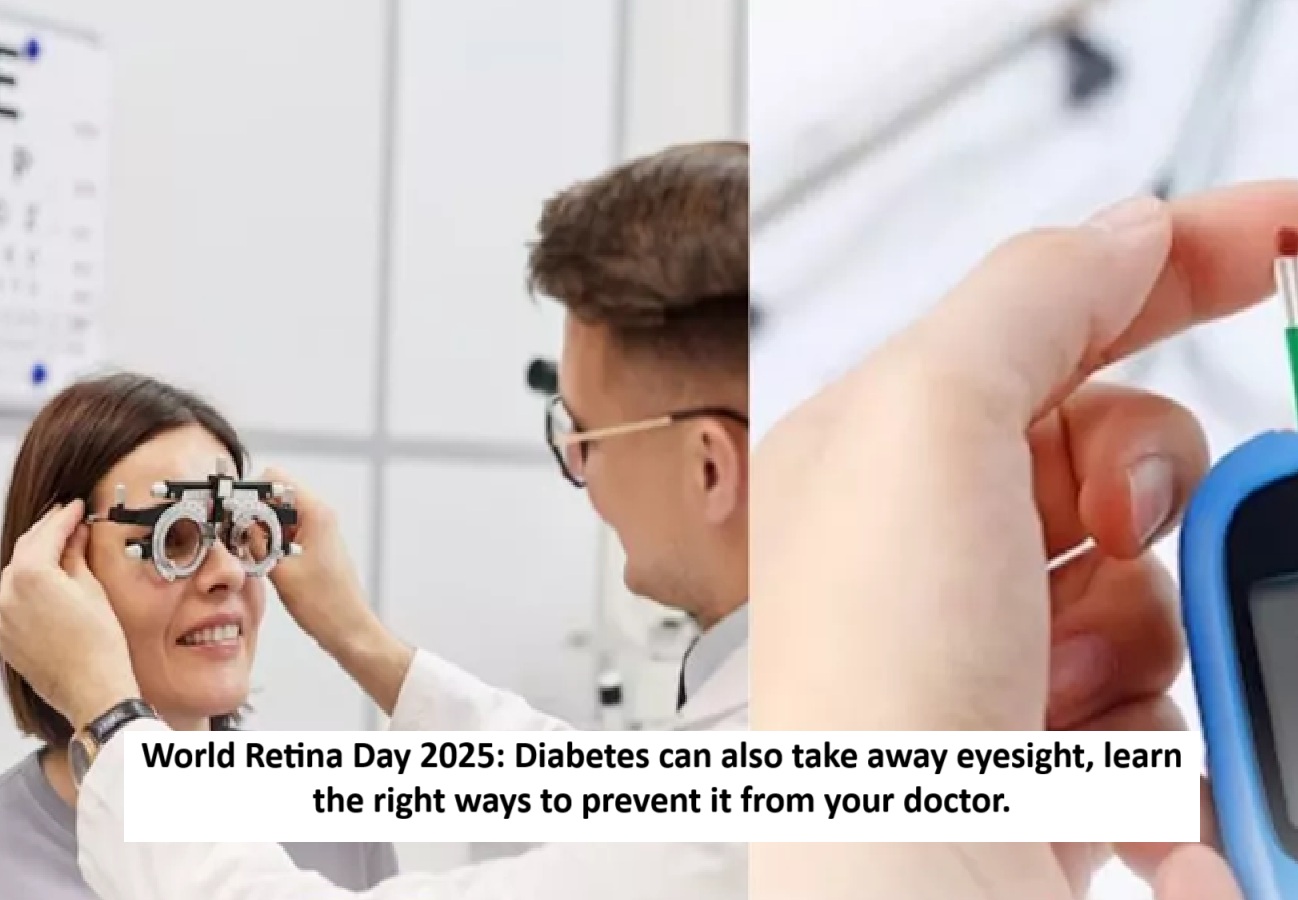
News Topical, Digital Desk : Diabetes is an incurable disease that slowly weakens our entire body. It affects almost every vital part of the body, including the eyes. Yes, our eyes can also suffer the adverse effects of diabetes.
What is the retina and how does diabetes damage it?
The retina is a thin, light-sensitive layer located at the back of the eye that functions like the film in a camera. It converts light into signals and transmits them to the brain, allowing us to see. In diabetes, high blood sugar levels over time can damage the body's small blood vessels, especially those in the retina.
There are two main stages of this damage:
- Non-proliferative diabetic retinopathy – This is the initial stage in which blood vessels weaken and begin to leak. These vessels leak blood or fluid, causing the retina to swell. This swelling causes blurred vision. This condition is called diabetic macular edema, which is a common cause of vision loss.
- Proliferative diabetic retinopathy— When blood vessels become clogged and the retina is deprived of oxygen, the body begins to form abnormal, new blood vessels. These new vessels are very fragile and can easily rupture, causing hemorrhage into the retina. This bleeding causes vision loss. Scar tissue also forms along these vessels, which can pull on the retina and cause it to detach, a serious condition.
What are the main symptoms of diabetic retinopathy?
There are often no symptoms in the early stages, which is why it's called the "silent thief." As the condition worsens, these symptoms may appear:
- To see blurred.
- Seeing dark spots or floating threads in the field of vision.
- Difficulty seeing at night.
- Difficulty in recognizing colors.
- Sudden fluctuations in vision.
- Darkness before the eyes or loss of vision.
What are the methods of prevention and treatment?
The good news is that vision loss can be prevented with proper care and timely treatment.
- Regular eye exams – Every diabetic patient should have a complete eye exam at least once a year, even if they don't have any symptoms. During these exams, doctors can examine the retina to detect early damage.
- Blood sugar control – Controlling sugar is the most effective way to reduce the risk of retinopathy.
- Controlling blood pressure and cholesterol: High blood pressure and cholesterol increase the risk of retinopathy. It's important to control these.
- Healthy lifestyle – Eating nutritious food, regular exercise and quitting smoking are beneficial for eye health .
Read More: Benefits of Walking: How fast is walking beneficial for heart health, what do doctors say?
--Advertisement--

 Share
Share



